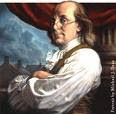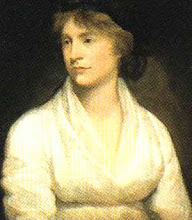In her poem “To my Dear and Loving Husband,” Bradstreet rebels against Puritian culture by expressing her profound love toward her husband. She states, “If ever two were one, then surely we. / If ever man were lov’d by wife, then thee. / If ever wife was happy in a man, / Compare with me, ye women, if you can.” Puritian culture believed the love between a man and a woman should be repressed, so not to distract from the work and devotion of God. Bradstreet defied the expectation of women in her time and defied those expectations in the lines of her poetry and uses her poetry to combat those expectations.
Despite her boldness, Bradstreet also exemplified humility in her spirituality to material wealth. In many of her poems she expressed an indifference to material wealth. Specifically in “Verses upon the Burning of our House,” Bradstreet denounced materialism and states, “Adieu, Adieu, All’s Vanity. / …There’s wealth enough; I need no more. / …My hope and Treasure lies above.” The humility of spirituality described in these poetic lines is parallel to the values of the Puritian society in which she lived.
10 September 2008
Subscribe to:
Post Comments (Atom)









1 comment:
Loved the lines of poetry you cited, they are beautiful. Thank you for providing this. It made me think.
Your layout and the contrast of colors is very appealing, good job!
Post a Comment